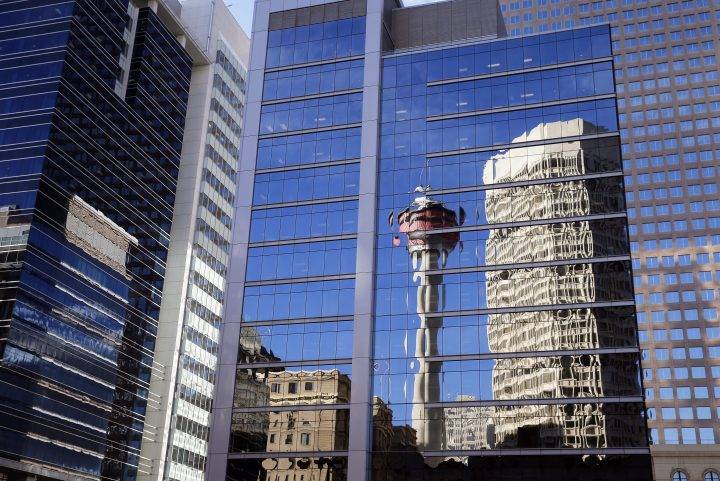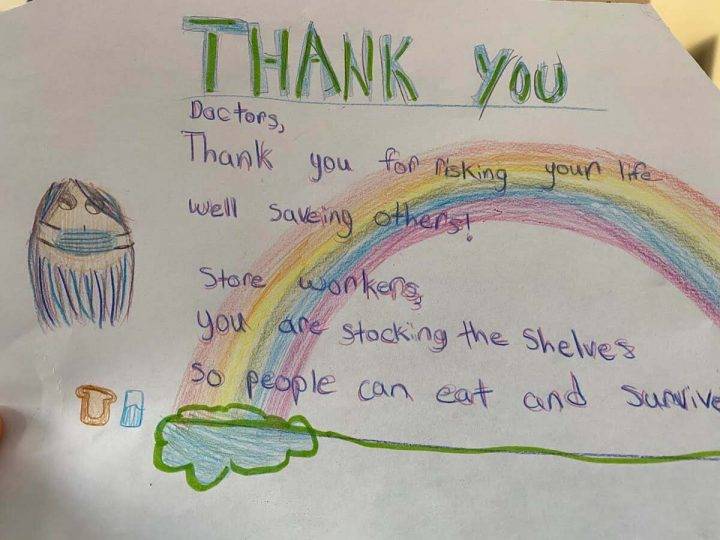Multifamily, office and industrial real estate will emerge from the COVID-19 crisis as winners, while losers will include the energy, transportation and hospitality sectors.
Those are among the insights offered by CIBC World Markets managing director and deputy chief economist Benjamin Tal during a May 5 Real Estate Forums webinar.
“It’s not a recession, it’s not a depression, it’s something in-between,” Tal said of the unprecedented position Canadians, and people around the world, find themselves in. “It’s basically a frozen economy.”
Tal expects a “recessionary recovery” to be long and in a “zig-zag” pattern, with volatility to be found in valuations, expectations, gross domestic product (GDP) growth and consumer confidence. The end point will be finding a vaccine or effective treatment for COVID-19.
Tal anticipates governments continuing to play a large role in the economy, as relief payments to get people through the crisis evolve into a more permanent universal basic income system.
Deglobalization will continue and two distinct trade blocs, respectively led by the United States and China, will be established. While Canada was trying to diversify its economy by lessening its reliance on the U.S. before this crisis, Tal now expects that to revert.
As well, Tal believes many companies will start thinking less in terms of profits and more in terms of resiliency.
More medical-related products and other essential goods will be produced domestically and there will be a move from “just-in-time” to “just-in-case” inventory systems.
Tal’s Canadian real estate market overview
“What we’re seeing now is not a market that’s functioning normally,” Tal said. “When you have the number of transactions going down so rapidly, and you’re basically frozen, the signal that you’re getting from the market is a misleading signal.
“It’s not a real signal because it’s biased and very small.”
Tal said real estate valuations being made now have very little value and people should be careful about making decisions based on the current economic situation.
“For the real estate market, if this recovery is going to be relatively long, it means that interest rates will remain relatively low,” said Tal. “That’s positive.
“I think the damage to the real estate market isn’t as significant as perceived.”
Tal expects the Canadian economy to emerge from the recovery phase in 2022 or 2023 and that “the demand for real estate will remain very strong.”
Impact on Canada’s housing market
Tal said the Canadian housing market was at a “very, very, very good” starting point before the current crisis.
This is easing the pain brought about by housing activity dropping 70 per cent compared to a year ago. Supply and demand are both down.
“We’re seeing some significant delays in completions, especially in the high-rise segment of the market,” said Tal.
Problems include getting materials from other countries and increased physical distancing on construction sites, which reduces productivity by 40 to 50 per cent.
A total of 30,000 condominium completions were projected in the Greater Toronto Area in 2020, but the final tally won’t come close to that.
Housing starts will slow dramatically across Canada, contributing to a lowering of the GDP. While things will improve next year, Tal doesn’t expect the numbers will return to pre-crisis levels.
There were large job losses across Canada in March and April, a high proportion of them low-paying. Most of those people live in rental housing.
Tal is adamant, however, that the Canadian rental housing market is not in danger of collapse.
Somewhat surprisingly, Tal said the rent payment rate among those low-income earners was higher than for Canadian renters in higher income brackets.
He attributes this to many low-earners now receiving a $500 weekly Canada Emergency Response Benefit payment from the federal government, which they’re using to pay rent.
Many also live in rent-controlled apartments where they’re paying well-below-market-value rents. They’ll do whatever it takes to pay to keep living there.
While reports claim 85 to 90 per cent of apartment rents were collected in April, Tal thinks that number will go down in May.
The number of immigrants and non-permanent residents in Canada will decrease this year. A large percentage of those people are also renters, which will decrease demand for rental housing.
Tal expects that to be balanced out somewhat by a reduction in supply due to a lack of apartment building completions, so the vacancy rate increase won’t be dramatic.
Commercial real estate sectors
There have been predictions of a collapse in office building values because of reduced demand owing to an increased number of people working from home.
The pandemic accelerated that trend but Tal expects it to be offset, to a degree, by the desire to dedicate more space to each employee as a means of physical distancing.
“Vacancy rates might be rising and I think that rent inflation will go down a little bit, as we have seen in every recession,” he predicted.
“But at the same time, I think that those who predicted that this market will collapse are overstating the damage. I don’t think that the move towards people working from home will be as dramatic as perceived, given the productivity aspect.
“Even if you lose 20 per cent of people working in the office, you will have to build bigger, which means that you have a situation in which the demand for space will be relatively steady or maybe reduced a little.”
The momentum of e-commerce started years ago and will continue to build, but at a faster rate. More people have started online shopping by necessity because most stores are closed and people aren’t leaving their houses.
This will have an obvious impact on retail real estate, which has already encountered challenges over the past few years.
“High-quality retail will remain in demand, and in fact it will improve,” said Tal. “I see significant damage to low-quality retail. This means that you will see e-commerce taking over.”
Tal didn’t address industrial real estate, beyond saying he’s still bullish on the sector.
Written by: Steve McLean RENX.ca
 For many Canadians, the Victoria Day holiday weekend is the time to start thinking about summer. Bonus: It’s a day off school! But why do we celebrate the birthday of Queen Victoria, who died nearly 115 years ago?
For many Canadians, the Victoria Day holiday weekend is the time to start thinking about summer. Bonus: It’s a day off school! But why do we celebrate the birthday of Queen Victoria, who died nearly 115 years ago?


